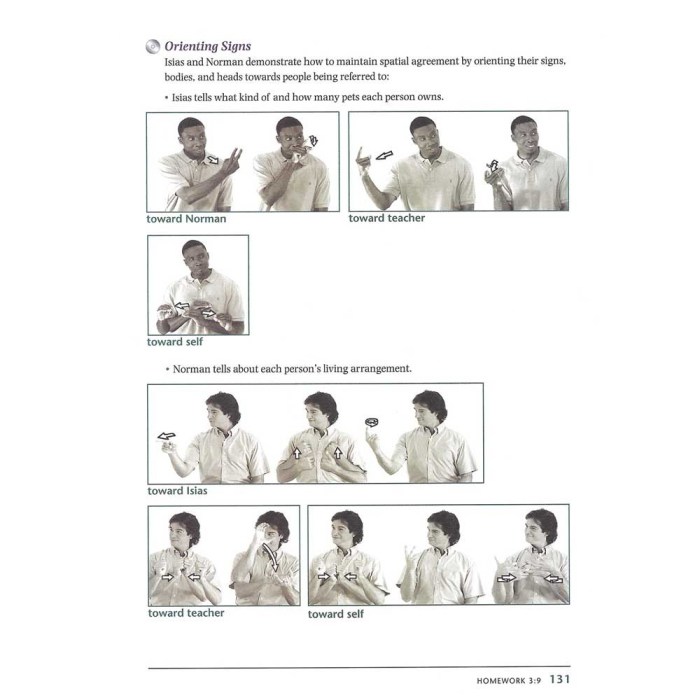Embark on a linguistic journey with Signing Naturally Answer Key Unit 5, an indispensable resource that empowers you to master American Sign Language (ASL). Delve into the intricacies of key vocabulary, grammar concepts, and cultural aspects that shape the vibrant tapestry of ASL.
This comprehensive guide provides a roadmap for understanding the fundamentals of ASL, enabling you to communicate effectively within the Deaf community and appreciate its rich cultural heritage.
Signing Naturally Unit 5: Key Vocabulary

Signing Naturally Unit 5 introduces several key vocabulary terms related to the Deaf community and American Sign Language (ASL). These terms are essential for understanding the unit’s content and effectively communicating in ASL.Key Vocabulary Terms:
-
-*ASL
American Sign Language, a complete and natural language used by the Deaf community.
-*Deaf
A person who has a significant hearing loss that affects their ability to communicate through speech.
-*Deaf culture
The shared values, beliefs, and practices of the Deaf community.
-*Fingerspelling
A method of representing words using handshapes to represent individual letters.
-*Non-manual markers
Facial expressions, body movements, and other non-hand gestures that provide additional information in ASL.
-*Sign
A visual gesture used to represent a word, concept, or idea in ASL.
Grammar Concepts: Signing Naturally Answer Key Unit 5

Unit 5 of Signing Naturally covers several important grammar concepts that are essential for understanding and using ASL. These concepts provide a foundation for building ASL sentences and expressing oneself clearly.Grammar Concepts:
-
-*Classifier constructions
Using handshapes and movements to represent specific types of objects or actions.
-*Compound signs
Combining two or more signs to create a new meaning.
-*Directional verbs
Signs that indicate the direction of an action or movement.
-*Eye gaze
Using eye contact to convey meaning and indicate the focus of attention.
-*Facial expressions
Non-manual markers that add emphasis and emotion to ASL.
-*Pronouns
Signs that refer to specific people or things.
-*Question formation
Using specific handshapes and movements to indicate a question.
Query Resolution
What is the purpose of Signing Naturally Answer Key Unit 5?
To provide comprehensive support for learners of American Sign Language, covering key vocabulary, grammar concepts, cultural aspects, and practical exercises.
How does this resource enhance ASL proficiency?
By offering clear explanations, examples, and practice opportunities, it strengthens understanding and facilitates effective communication in ASL.
What unique insights does this guide provide?
It explores the cultural aspects of the Deaf community, fostering appreciation for its values and perspectives.